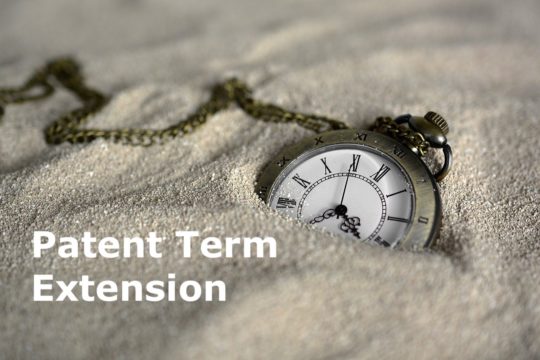
 A Patent encompasses an elite enforceable right to the applicant for a novel invention. In turn, the applicant makes knowledge about the invention open to the public domain. Patents come under the head of Intellectual Property Rights. Other Intellectual Property Rights are Copyright, Trademarks, Industrial Designs, and Geographical Indications with Acts and Rules regulating the same. The primary objective of Intellectual Property Rights is to promote progress and encourage invention.
A Patent encompasses an elite enforceable right to the applicant for a novel invention. In turn, the applicant makes knowledge about the invention open to the public domain. Patents come under the head of Intellectual Property Rights. Other Intellectual Property Rights are Copyright, Trademarks, Industrial Designs, and Geographical Indications with Acts and Rules regulating the same. The primary objective of Intellectual Property Rights is to promote progress and encourage invention.
How long is a patent valid in India?
Patent protection is granted for a time period of 20 years. There has been much debate over whether the patent term should be extended. These arguments find their basis in delays with the examination and prosecution of the patent applications as well as delays in the grant of various regulatory approvals. Currently, India does not allow the extension of patent terms. These delays by the Indian Patent Office in the course of processing patent applications can consume up to half of the term of the patent grant. There may also be delays due to other regulatory authorities such as the National Biodiversity Authority (NBA). Further, for want of timely regulatory approval, even after the grant of a patent, especially in pharmaceutical inventions, a patented product may not be marketed for several years
The first proposal for the patent term extension was by reference to the Second Committee appointed by the Government of India under the direction of the Hon’ble High Court of Delhi in the case of Nitto Denko Corp v. Union of India.
One of the terms of reference was to consider compensation for patentees for the time consumed in the examination process, in terms of maintenance fee waiver or patent term extension.
On consideration of the proposal for the patent term extension, it was observed that the proposal isn’t suitable to India, where the monopoly for 20 years itself is considered too long to block genuine competition. This is especially so in a time and age with technologies covered by inventions/patents becoming obsolete too fast.
The committee concluded that a 20-year patent term is provided for delays too, and the applicant/inventor may take steps for regulatory approvals and commercialization during the pendency of the patent application.
Further, the draft IPR policy suggested several measures to speed up examination, prosecution, and grant of patent applications. Still, nothing was put forward for the extension of the patent grant period. Presently, the Indian policy framework is to reduce delay and pendency in the Indian Patent Office.
Recently, the Regional Comprehensive Economic Partnership (RCEP) has reignited the debate about patent term extension.
The RCEP that involves 16 countries has proposed to extend the existing 20-year long patent term for pharmaceuticals. The present timeline of a patent grant, i.e., 20 years, was mandated by the TRIPS agreement.
What are the relevant features of the Patents (Amendment) Act 2005 associated with product patents?
– The extension of patent protection to products in sectors of medications, nourishment, and chemicals.
– The term for protection of product patent shall be for a period of 20 years
– Introduction of a provision for enabling the grant of mandatory license for the export of drugs to countries that lack manufacturing facilities; provided the such importing country has either granted a compulsory license for import or by notification or otherwise allowed the importation of the patented pharmaceutical products from India as per the Doha Declaration on TRIPS and Public Health
– Section 3 (d)[1], regarding patent-ability.
What are the Impacts of patent term extension?
– The RCEP sought to increase and standardize the grace period granted to patent applications during the assessment of the respective invention’s novelty in compliance with the requirements of patentability.
– This proposed extension of the grace period would effectuate a prior publication that could indicate the lack of newness of an invention, now not be permitted as part of the examination or opposition evidence.
– This extended grace period is designed to make patenting simpler for companies.
– Any extension of the patent term could adversely affect access to the inexpensive medicines that conventional pharmaceutical companies manufacture in India.
– The grant of a longer-term for pharmaceutical patients will engender deferrals in the passage of traditional forms and could adversely affect access to affordable medicines.
Criticism
In ever-changing sectors such as information technology and electronics, the grant of 20-year patent protection lacks rationalization. With prices gradually decreasing within the first few years of the introduction of new technology in some industries, this extensive patent grant period is unwarranted without an economic basis. If the term of the patent grant were to be extended, the exclusivity would be higher and subsequently increase the time taken for the respective patent technology to enter the public domain. This results in technological lock-in.
Countries on behalf of their pharmaceutical companies seek patent grant extensions on the ground that it is necessary to recoup the research and development costs. It is also contended that a patent grant extension could make up for the time lost in getting regulatory approval or owing to delays at the patent office. However, generally, major pharmaceutical companies report profits that are many times more than the costs involved in Research and Development.
Any further extension in the terms of a patent in India will result in corporate welfare at the cost of social welfare.
